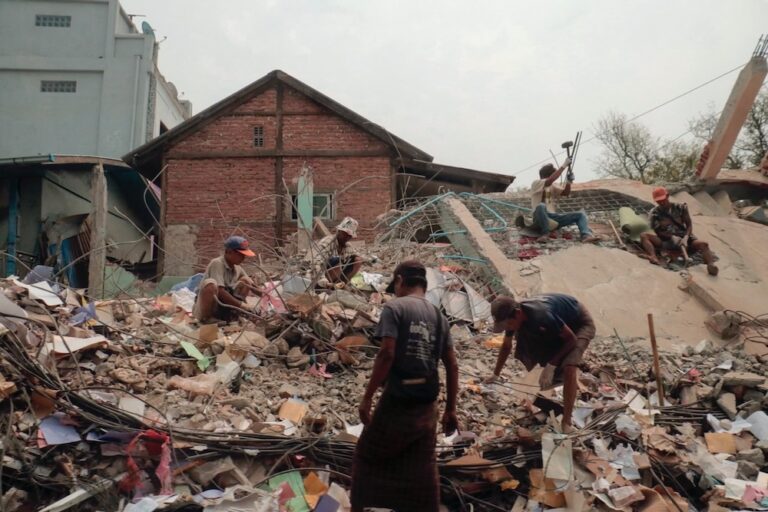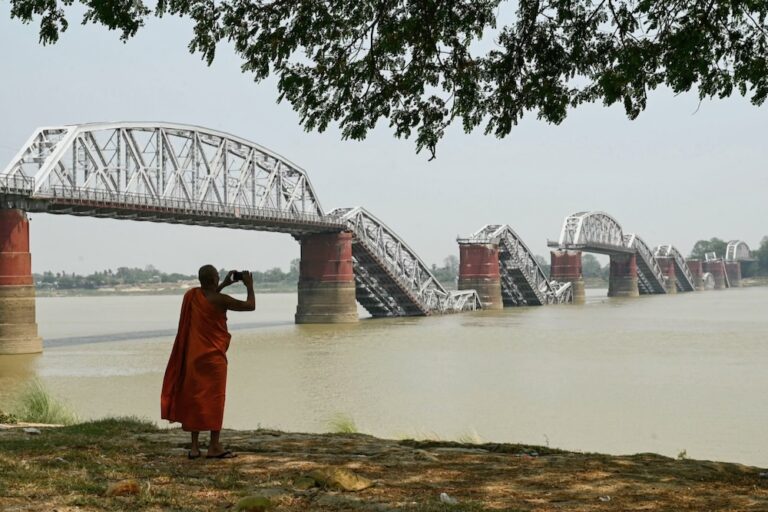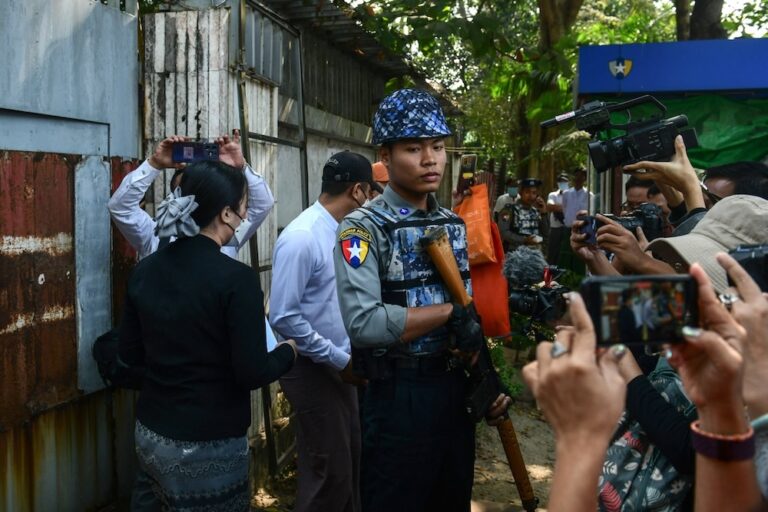(SEAPA/IFEX) – The following is a SEAPA statement: SEAPA says press conditions in Burma going ‘from worst to worse’; Junta shuts down 17 publications CONDITIONS for the Burmese press are quickly going “from worst to worse”, the Southeast Asian Press Alliance today said, following the sudden dismissal this week of Gen. Khin Nyunt as prime […]
(SEAPA/IFEX) – The following is a SEAPA statement:
SEAPA says press conditions in Burma going ‘from worst to worse’; Junta shuts down 17 publications
CONDITIONS for the Burmese press are quickly going “from worst to worse”, the Southeast Asian Press Alliance today said, following the sudden dismissal this week of Gen. Khin Nyunt as prime minister.
SEAPA said that, as it had feared in earlier statements, the shake-up in Burma’s military leadership has immediately triggered further clampdowns on the Burmese media.
The Burmese Media Association (BMA) said at least 17 publications have been suspended in the few days since Khin Nyunt’s ouster. Banned journals and magazines include Seven Days, NewGazette, Kumudra, and Living Color. Living Color is officially published by Ye Naing Win, son of Khin Nyunt.
Meanwhile, Myanmar Times, jointly owned by an Australian publisher and the Office of the Strategist Studies (OSS), was also reportedly suspended, pending an expected shake-up in Burma’s notorious censors board.
SEAPA, a leading voice for press freedom in Southeast Asia, earlier this week expressed “grave concern” that the flow of information into, out of, and within Burma could only be expected to get further restricted following Khin Nyunt’s dismissal.
“We will no doubt see Burma going from worst to worse,” SEAPA Executive Director Roby Alampay said. “There is no independent or reliable news that is allowed to escape the Burmese border. It’s one of the worst and most dangerous places to be a journalist. And still, if events this week are anything to go by, Burma’s notorious control over all forms of media and information is sure to constrict even further.”
SEAPA noted that even prior to the unexpected sacking of Khin Nyunt this week, sources in Rangoon were already sounding the alarm over a series of clampdowns on local magazines, business publications, literary media, and even musical artists over the past few months.
Khin Nyunt was ousted on 19 October in a tense but bloodless standoff with Burma’s military rulers.
Burma’s state-run television stations insist that Khin Nyunt was retiring for “health reasons”, but news filtering out of the country indicates he was in fact kicked out of government by the junta’s Supreme Commander, Gen. Than Shwe.
Though until recently Khin Nyunt was part and parcel of the notorious junta that rules Burma with an iron fist, the ousted prime minister was seen by observers as the most viable catalyst for reform in the country. Khin Nyunt was for reopening talks with the charismatic opposition leader Aung San Suu Kyi, who remains under house arrest. It was also Khin Nyunt who promised the international community that Burma would amend its constitution, as a crucial first step on the road to political reform.
Now that he, too, has been isolated, SEAPA said the junta’s internal purge could be accompanied by further crackdowns on writers, journalists, and rights advocates in the country.
SEAPA is thus calling on the international community, particularly the Association of Southeast Asian Nations (Asean), to review their policies on engaging the Burma junta. “Clearly, Asean’s constructive engagement stance is merely encouraging the junta to disregard international demands for reform and democratic space,” SEAPA said.
“Burma is already one of the worst places in the world to be a journalist, writer, poet, or artist,” Alampay said. “And yet as hostile as the junta has been to freedom of expression, recent developments suggest that Burma’s military leaders are far from done in their work of stifling and controlling all information in their country.”
A report aired by the Democratic Voice of Burma (DVB) – a radio operation run by Burmese journalists exiled outside of Burma – says the Burmese Censorship Bureau (BCB) most recently ordered a six-month ban on “Myanmar Dana”, an economics magazine, after the publication ran a portrait of jailed Burmese artist, Min Ko Naing.
Myanmar Dana’s September edition had a cover story on Min Ko Naing’s father, U Thet Nyut, who is also a well-known artist in Burma. The story was accompanied by a picture of him back-dropped by paintings, including a portrait of his imprisoned son.
An editor of the magazine later denied the reports, but sources in Rangoon said the BCB order to ban the magazine was suspended only following negotiations between the publisher and the BCB officials.
Prior to this, information coming out of Burma had it that the Burmese Censorship Bureau ordered the closure of “Khit-Sann”, a privately-owned magazine that regularly features analysis of international affairs, economics, and international political theorists. A government spokesman said the closure was due to financial problems but several news reports suggest the journal was punished for publishing “pro-American” views.
In July, a local documentary filmmaker was arrested for filming a flooding disaster in northern Burma. Earlier this year, meanwhile, military officials seized CD’s containing political songs sung by a Burmese hip-hop group whose members are living in exile.


